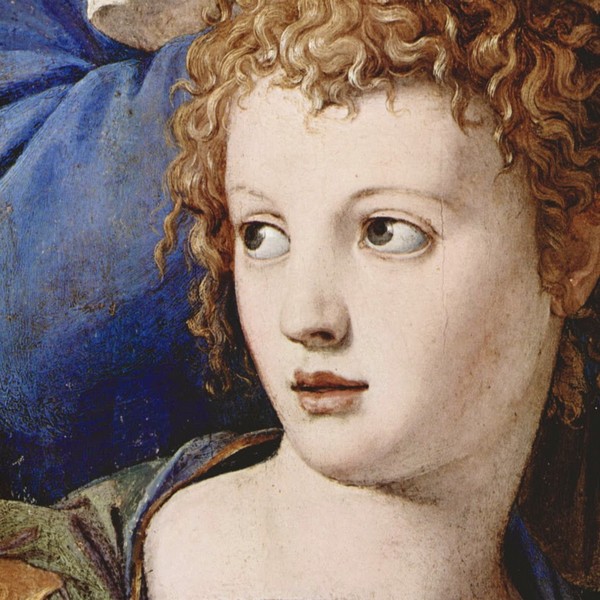
In this article, I would like to tell you about two books: one that was recently published, and one that was never published. Both interest us because they are related to Franz Schubert. That is why I waited until this week, when we commemorate 194 years since his death, to talk about it. As every year, we remember him, and thank him endlessly for his music.
When the apple of my eye died, on November 19, 1828, he had great prestige as a composer in what we would now call the alternative music scene, while he was barely known in the official circuit. Some of his published Lieder had been largely sold, and his name was known in many households, but, as we discussed a while ago, being a composer of songs, however appreciated, didn't turn him into in a true composer.
The appraisal of Schubert's work eventually changed, in part thanks to composers such as Franz Liszt, who during the 1930s had performed his songs in Paris, either as an accompanist or in his solo piano versions; like Robert Schumann, who in 1838 had visited Ferdinand Schubert in Vienna and had been impressed by the scores he kept; or like Felix Mendelssohn, who in 1839 had premiered in Leipzig one of these works, the Symphony no. 9, known as “The Great”.
Then, in the late 1850s, Ferdinand Luib (1811-1877), whom we know little more than that he had worked for different musical publications, thought of writing a biography of Schubert. To obtain information about his life, he asked the people who had known him to share their memories so that he could write the biography based on them. It would have been a immense task: to locate Schubert's acquaintances almost thirty years after his death, to contact them, and to persuade them to write their memoirs, to do a critical reading of the texts, to compare the pieces of information, to try to resolve contradictions, to discover new sources...
Some of the closest people to the composer, such as Johann Mayrhofer or Johann Michael Vogl had already died by then; others, like his brother Ferdinand, or the really discreet Franz Schober (who could have explained so many things), didn't answer Luib's letters. Despite the difficulties, he was able to collect the memories (some very brief, some quite extensive) of forty-one people, of which thirty-five of which have been preserved. But after such a great effort, he never managed to writing his book, for unknown reasons. And when the first biography of Franz Schubert was published in 1865, its author was not Ferdinand Luib but Heinrich Kreissle von Hellborn (1812-1869). We don't know much about Kreissle, but it seems that his colleague would have given him the materials he had collected, which he added to with his own research.
When Josef von Spaun read Kreissles biography, he was not satisfied, and he published an article in which he stated some details. He had been one of Schubert's friends who had answered Luib's questions in detail. In addition, he had written an obituary for Schubert and had even dedicated a chapter of his memoirs to him. This chapter, included in a book in which he talked mostly about his family (a family with which Schubert got along), tells us a lot about how much Spaun loved his friend, and how much he missed him, especially those years that he called "that beautiful and unforgettable time". With these four texts, Spaun became one of the most important sources of information about Schubert, especially because, unlike other friends, who had dealt with him for only a few years, he had known him for twenty years, from when they were at boarding school together until his death. The four writings, as well as those gathered by Luib, Kreissle, Liszt and others, were collected by Otto Erich Deutsch, an essential musicologist when we talk about Schubert (the D of his catalogue of works), in the book Schubert. Die Erinnerungen seiner Freunde.
And that's how we arrive at the second book I wanted to tell you about, Franz Schubert vist pel seu millor amic [Franz Schubert seen by his best friend], published by Editorial Arpegio, which I had the pleasure of prefacing. As I told you some time ago when I presented a recently published Catalan version of Müller's Die Winterreise, I think it's always good news when literature about Art Song is spread thanks to new translations, even if you, my English readers, aren't their target audience. In this case, there are only two versions of Erinnerungen, in German and in English; the musicologist Manuel Capdevila translated into Catalan (and into Spanish) the four mentioned texts by Spaun, as well as the few letters between him and Schubert. As far as I know, these translations are the only existing in any other language, so let's celebrate it!
One of the things Spaun tells is the first meeting between Schubert and Vogl. The famous baritone took a lied from a stack and said to the embarrassed composer, "Play with me." After humming the score, his comment, somewhat disappointing for those present, was, "It's not bad." So to end this celebration of Schubert's music, I invite you to listen to that song that wasn't bad, Augenlied [Song of the Eyes], D. 297, composed in 1817 with poem by Johann Mayrhofer; it's performed by Ann Murray and Graham Johnson.
Süsse Augen, klare Bronnen!
Meine Qual und Seligkeit
Ist fürwahr aus euch gewonnen,
Und mein Dichten euch geweiht.
Wo ich weile,
Wie ich eile,
Liebend strahlet ihr mich an;
Ihr erleuchtet,
Ihr befeuchtet,
Mir mit Tränen meine Bahn.
Treue Sterne, schwindet nimmer,
Leitet mich zum Acheron!
Und mit eurem letzten Schimmer
Sei mein Leben auch entfloh’n.
Sweet eyes, clear springs!
My anguish and my bliss
both derive from you;
And to you my poem is dedicated.
Wherever I tarry,
however I hurry,
You beam upon me lovingly;
You illuminate,
you moisten
with tears my path.
Faithful stars, never disappear,
Conduct me to Acheron!
And with your final glimmer
May my life expire.
(Translation by Emily Ezust)


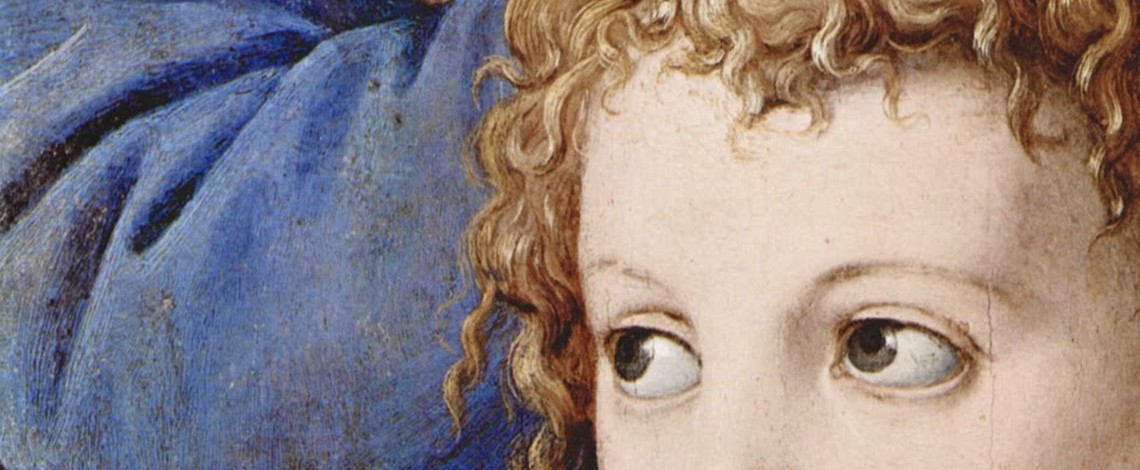
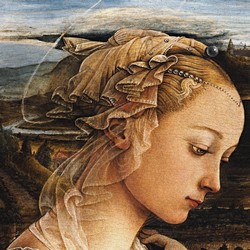
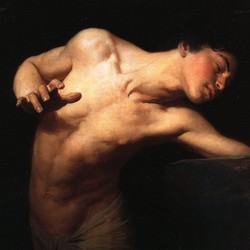
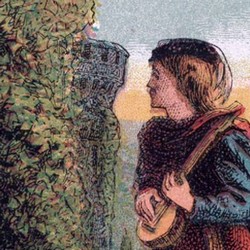












Comments powered by CComment